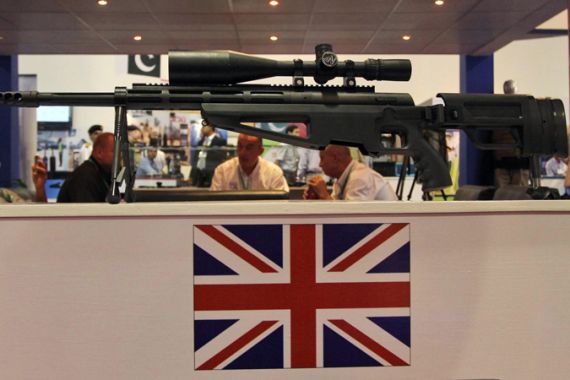UK selling weapons to human rights abusers
Parliamentary report finds “inherent conflict” in arms export and human rights policies.

Britain has issued more than 3,000 licences allowing the export of weapons to countries where the UK has human rights concers, according to a parliamentary report.
The report from the Commons Committee on Arms Export Controls, released on Wednesday, said the combined value of the licences came to more than $18.1 billion.
Britain’s Foreign Office lists 27 nations where the government has wide-ranging concerns about the human rights situation, including Myanmar, China, Iran, Iraq, Israel, Libya and Syria.
According to the report, all but two of the 27 – North Korea and South Sudan – have valid export licences in play. Among the countries of concern, the largest number of licences were issued for exports to China, Saudi Arabia and Israel.
Policy conflict
While it said many of the licences were for items “not readily usable” for internal repression, the committees said a “surprisingly large” number were issued to exporters sending arms to countries where human rights were a concern.
The scale of the licences “puts into stark relief the inherent conflict between the government’s arms exports and human rights policies,” said John Stanley, chairman of the committees.
It urged the government to exercise more caution in approving applications for the export of arms to countries with authoritarian regimes.
“The committees adhere to their previous recommendation that the government should apply significantly more cautious judgments when considering arms export licence applications for goods to authoritarian regimes which might be used to facilitate internal repression’ in contravention of the government’s stated policy.”
In response, the British government said it took its export responsibilities “very seriously” and that it had “one of the most rigorous arms export control regimes”, under which licences are not granted when there is deemed to be a risk that goods would be used for internal repression or to provoke or prolong conflict in countries they are exported to.
It added that all of the licences highlighted had been “fully assessed” to ensure goods would not be used for internal repression or used aggressively against another country.